

Academics
University Research
Office of the Research and Innovation and Institutional Development (ORIID)
The ORIID is committed to designing and Implementing programs for CEU to become a learning
and sustainable organization, an organization skilled at creating, acquiring, and transferring
knowledge through research, creative works, innovation, and quality assurance. The office is
headed by the Vice President for research, innovation, and institutional development. It
consists of two main departments: the Research and Innovation Department (RID) and the
Institutional Development Department (IDD).
Research and Innovation Department
The Research and Innovation Department (RID) provides administrative and academic support
for research undertakings, taking into account the University’s policies on research, designs,
and implements programs that would encourage the conduct of research and creative works,
which are locally responsive and globally competitive.
Administration
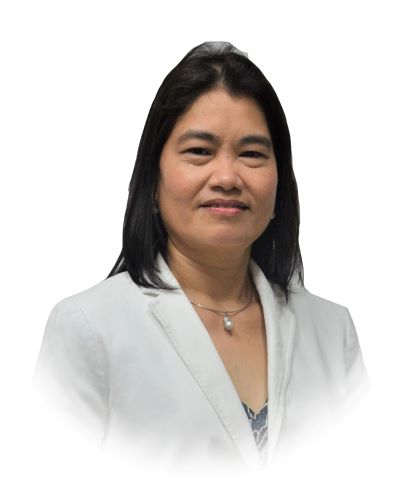 | Dr. Erna V. YabutVice President for Research, Innovation and Institutional Development ERNA VOLANTE-YABUT, PhD Centro Escolar University, Manila Office of Research, Innovation, and Institutional Development 2nd floor CAH Building 9 Mendiola St. San Miguel Manila Email: [email protected], [email protected] |
Dr. Erna Volante-Yabut earned her doctorate in Mathematics Education (2006) with the Highest Academic Distinction and Excellence in Research and a Master of Science in Mathematics Education (1993, Highest Academic Distinction and Isaac Catalina De Guzman Excellence in Mathematics Research) from Centro Escolar University. She earned some units in MS Statistics(1989-1990) and completed training in Applied Statistics from the University of the Philippines (U.P), Diliman, Quezon City. Her Baccalaureate in Secondary Education majoring in Mathematics and minor in Physics (1988) was obtained from the University of the Philippines (U.P), Diliman. She worked as a Research Assistant and Statistician (1987-1989) in a National Research Project funded by UP- DOST on National Identification. Data was collected from almost the whole of the Philippines to administer questionnaires and interviews with community members and political leaders. At present, she is the Vice President for Research, Innovation, and Institutional Development, a Corporate Information Officer, a Quality Management Representative (QMR) for the Quality Management System of the University. She has the rank of University Professor of the Mathematics Department and the School of Science and Technology. In her thirty four years of teaching, she has been invited as a resource speaker in the Development and Validation of Test Questions, Reinforcing the Skills of the Faculty Members, Statistical Process Control, and Test and Measurement. She conducted several types of research in teaching methodologies, validation of departmentalized tests, test items bank, and forecasting. She has co-authored several books on Mathematics, Statistics, and Computers. She is actively involved in the promotion of an effective quality system for the university. She is presently the chair of the Quality and Risk Management System Council (QRMSC), became the lead auditor of the Internal Quality Audit (IQA), chairman of the category on Measurement, Analysis, and Knowledge Management of the Philippine Quality Awards (PQA), former chair of the 5S Work Areas and Student Work Areas, chairman of different standing committees of the University such as the University Research Committee (URC), Performance and Evaluation Committee, Former Chair of the Institutional Ethics Review Committee (IERC), Institutional Animal Care and Use Committee (IACUC) and the overall chair for the Management Review and Strategic Planning session of the University. She is currently the National President of the Philippine Society for Research and Evaluation (PSERE), Chair - U-Belt Research Consortium, CEU Research and Development Foundation, and the Executive Secretary of the National Research Council of the Philippines Research Foundation (NRCPRF). | |
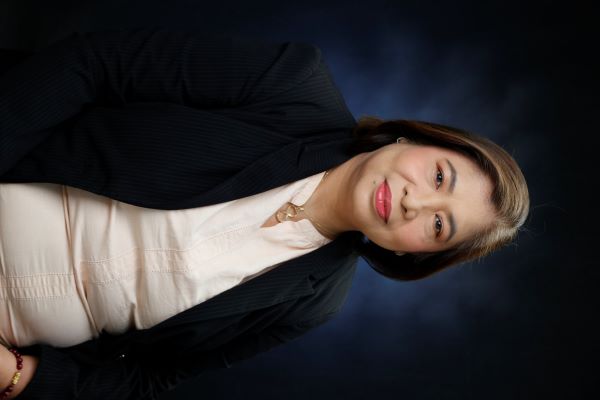 | Dr. Josephine M. De LeonHead, Research and Innovation Department JOSEPHINE M. DE LEON PhD, RN Centro Escolar University, Manila Office of Research, Innovation, and Institutional Development 2nd floor CAH Building 9 Mendiola St. San Miguel Manila Email: [email protected] |
Dr. Josephine De Leon, a Registered Nurse by profession, graduated from Manila Central University with a Bachelor of Science in Nursing in 1990. She pursued further education, earning a master’s degree in nursing focusing on Curriculum Instruction from Our Lady of Fatima University in 2007. Continuing her academic journey, she obtained a Ph.D. in Curriculum and Supervision in 2013 from Centro Escolar University. Currently, Dr. De Leon serves as a Professor at Centro Escolar University Manila, teaching at both the School of Nursing and Graduate School. In June 2023, she assumed the role of Head of the Research and Innovation Department, a position she holds to this day. She heads the University in pioneering research and innovation solutions, guiding strategic vision and implementation. She provides administrative and academic support for research undertakings, considering the University’s policies on research, and designs and implements programs that encourage the conduct of innovative, creative research that is locally responsive and globally competitive. With a wealth of research presentations and publications to her name, Dr. De Leon's interests lie in Nursing Education, Patient-centered care, Diabetes Mellitus, and Tuberculosis patient care. She leads the DOST-PCHRD grant research project titled "Effectiveness of Mobile Self- Management Education (M-DSME) for patients with Type 2 Diabetes Mellitus in Indonesia and the Philippines." Renowned for her expertise in nursing research, Dr. De Leon is highly sought after as a speaker and collaborator for national and international research endeavors. | |
| Research Staff | Contact Information |
|---|---|
Mr. Marlon Ryan I. Ricasata Administrative Assistant Centro Escolar University, Manila Office of Research, Innovation, and Institutional Development (ORIID) 2nd floor CAH Building Email: [email protected]
Mrs. Vivian V. Suto Office Assistant Centro Escolar University, Manila Office of Research, Innovation, and Institutional Development (ORIID) 2nd floor CAH Building Email: [email protected] |
Office of Research, Innovation, and Institutional Development (ORIID) 2nd floor CAH Building Centro Escolar University 9 Mendiola Street San Miguel, Manila 1005 Telephone number: Direct Line: +63 02 78356002 Trunk Line: +63 02 8756861 to 71 local 228 Email: [email protected] |
Latest Updates: University Research Forum 2023 University Research Forum and Festival of Creative Works 2024 | |
The CEU University Research Committee (URC) is a dedicated body responsible for overseeing and promoting research activities. This committee plays a crucial role in fostering a vibrant research environment by setting strategic priorities, ensuring adherence to ethical standards, and supporting faculty and student researchers. It comprises experienced researchers and faculty members from various disciplines, ensuring a broad representation of the university’s academic community.
The University Research Committee is integral to maintaining the institution’s research excellence, integrity, and innovation. Through its comprehensive oversight and support, the committee ensures that research conducted at the university meets the highest standards of quality and ethics.
CEU University Research Committee
Chair: Dr. Erna V. Yabut Vice Chair: Dr. Josephine M. De Leon Members: Dr. Margarita E. Grey (SAM) Dr. Marian Almyta S. Naranjilla (Dentistry) Mr. Julius O. De Leon (SELAMS) Mr. Mark Rodrigo D. Mendros (MedTech) | Dr. Naressia S. Ballena (Nursing) Mr. Junn B. Poloyapoy (SNHM) Dr. Sherwin William B. Suarez (Optometry) Mrs. Mylene S. Andal (Pharmacy) Mrs. Joan S. Adriano (Science and Technology) Dr. Maria Dina P. Avinante (CEU Malolos) Dr. Sonia Janice L. Pilao (CEU Makati) Dr. Lorena C. Balacanao (Graduate School) Dr. Ronald D. Subida |
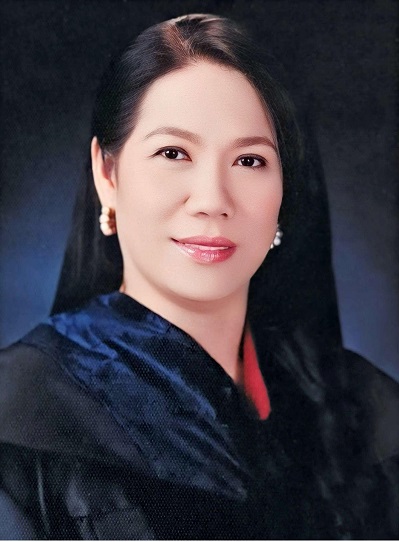 | Dr. Margarita E. GreyFaculty, School of Accountancy and Management MARGARITA E. GREY Ph.D Centro Escolar University, Manila Email: [email protected] Google Scholar Account Bionote: Dr. Margarita E. Grey | ||||||
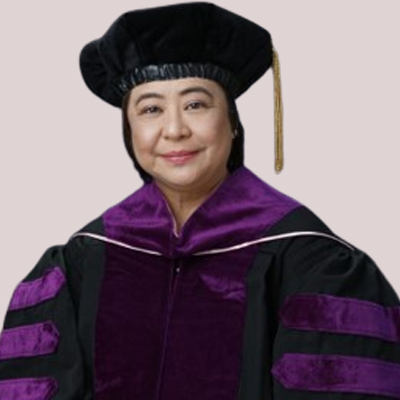 | Dr. Marian Almyra S. NaranjillaAssistant Dean School of Dentistry MARIAN ALYMRA S. NARANJILLA DMD Centro Escolar University Manila School of Dentistry Email:[email protected] Bionote: Dr. Marian Almyra S. Naranjilla | ||||||
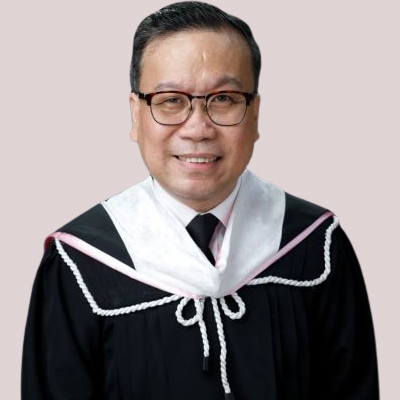 | Julius O. De LeonProgram Head Political Science Program School of Education Liberal Arts, Music, and Social Work JULIUS O. DE LEON Centro Escolar University Manila School of Education Liberal Arts, Music, and Social Work Email:[email protected] Google Scholar Account Bionote: Julius O. De Leon | ||||||
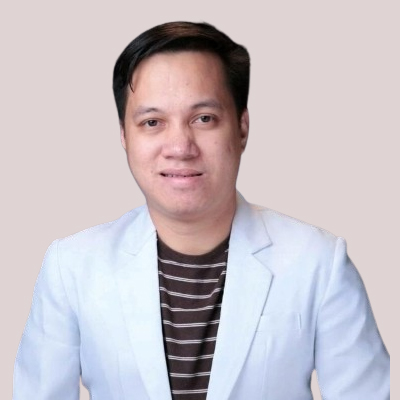 | Mark Rodrigo D. Mendros RMTCoordinator Internship School of Medical Technology MARK RODRIGO D. MENDROS RMT Centro Escolar University Manila School of Medical Technology Email:[email protected] Google Scholar Account Bionote: Mark Rodrigo Mendros | ||||||
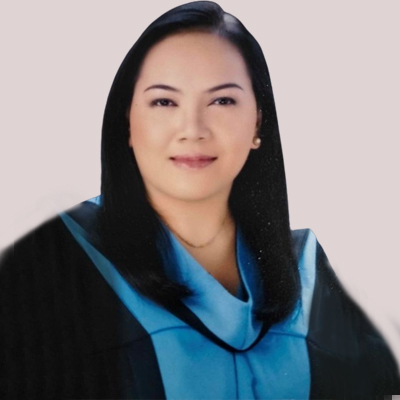 | Dr. Naressia S. BallenaFaculty School of Nursing NARESSIA S. BALLENA PhD Centro Escolar University Manila School of Nursing Email:[email protected] Google Scholar Account Bionote: Dr. Naressia S. Ballena | ||||||
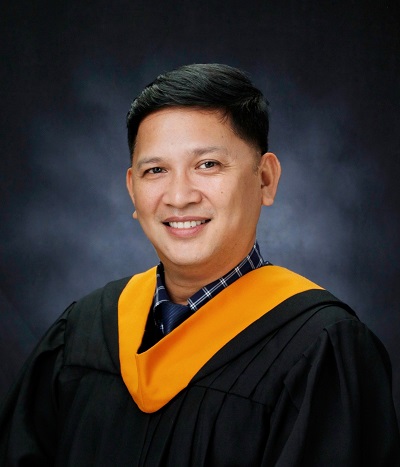 | Junn B. PoloyapoyInternational Tourism and Travel Management JUN B. POLOYAPOY Centro Escolar University Manila School of Nutrition and Hospitality Management Email:[email protected] Google Scholar Account Bionote: Junn Poloyapoy | ||||||
Dr. Sherwin William B. SuarezAssistant Dean School of Optometry SHERWIN WILLIAM SUAREZ O.D. Centro Escolar University Manila School of Optometry Email:[email protected] Google Scholar Account Bionote: Dr. Sherwin William B. Suarez | |||||||
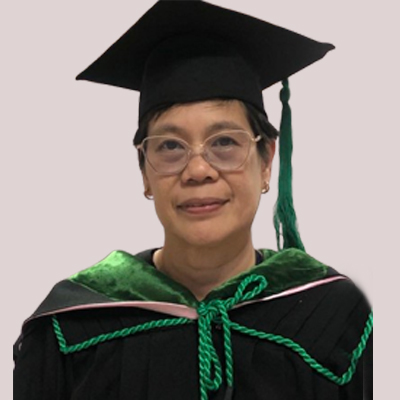 | Mylene S. Andal RPMCoordinator Pharmacy Laboratories Physical Sciences Department MYLENE S. ANDAL RPM Centro Escolar University Manila School of Pharmacy Email: [email protected] Bionote: Mylene Andal RPM | ||||||
 | Joan S. AdrianoFaculty Biological Science Department School of Science and Technology JOAN S. ADRIANO Centro Escolar University Manila Biological Science Department School of Science and Technology Email: [email protected] | ||||||
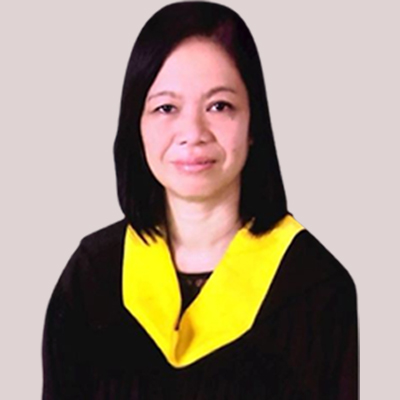 | Dr. Maria. Dinna P. AvinanteCoordinator Research, Planning, and Monitoring Section CEU Malolos MARIA DINNA AVINANTE Ph.D Centro Escolar University, Malolos Email: [email protected] Google Scholar Account Bionote: Dr. Maria Dinna P. Avinante | ||||||
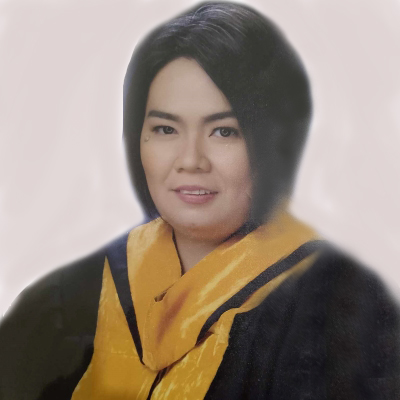 | Dr. Sonia Janice L. PilaoCoordinator Research, Planning, and Monitoring Section CEU Makati SONIA JANICE L. PILAO Ph.D Centro Escolar University, Makati Email: [email protected] Bionote: Dr. Sonia Janice Pilao | ||||||
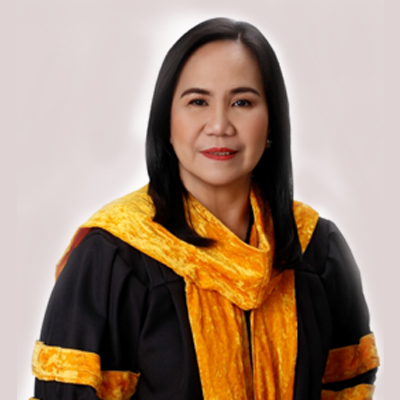 | Dr. Lorena C. BalacanaoAssistant to the Dean Graduate School LORENA C. BALACANAO DMD, Ph.D Centro Escolar University, Manila Email: [email protected] Google Scholar Account | ||||||
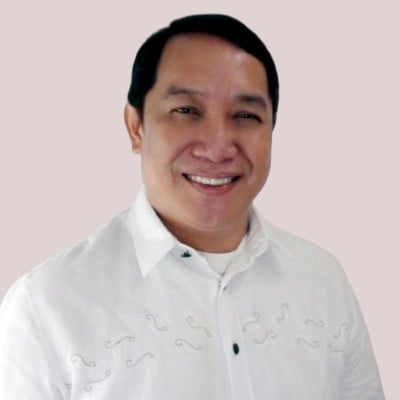 | Dr. Ronald D. SubidaIERB Chair Centro Escolar University Ronald D. Subida MD IERB Chair Centro Escolar University Email: [email protected] Google Scholar Account |
Creative work outputs will be recognized as part of faculty productivity and innovation at CEU. A Creative Works Assessment Panel, chaired by the Head of Research and Innovation, will recommend which creative works should be assessed and their relative value based on guidelines. The panel includes heads of the Conservatory of Music, Communication and Media, and Humanities and Social Sciences, along with at least three academics with expertise in relevant creative fields, such as textual, visual, music performance and composition, dance, or related inventions. A Creative Output Officer and a Verification Officer will support the panel, with additional members co-opted as needed.
Creative Works Panel Committee
Chair:
Dr. Josephine M. De Leon
Members:
Mr. Angelito E. Ayran Jr.
Dr. Arlene S. Opina
Dr. Chrisancti L. Macazo
Dr. Jonathan P. Catapang
Dr. Ruth R. Santos
Mr. D’Ariel Javellana
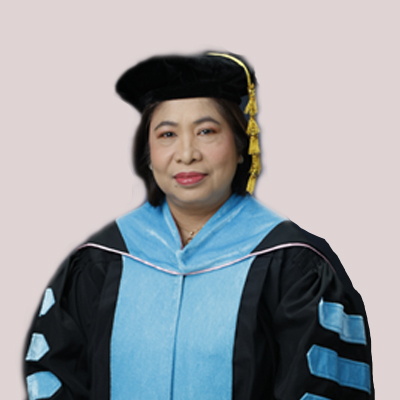 | Dr. Josephine M. De LeonHead, Research and Innovation Department JOSEPHINE M. DE LEON PhD, RN Centro Escolar University, Manila Office of Research, Innovation, and Institutional Development 2nd floor CAH Building 9 Mendiola St. San Miguel Manila Email: [email protected] | ||||||
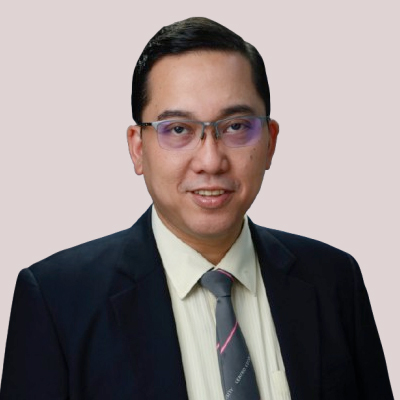 | Mr. Angelito E. Ayran Jr.Program Head Music Program School of Education, Liberal Arts, Music, and Social Work ANGELITO E. AYRAN JR. Centro Escolar University, Manila Email: [email protected] Google Scholar Account Bionote: Angelito Ayran Jr. | ||||||
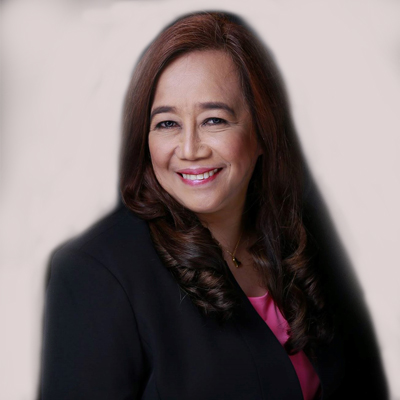 | Dr. Arlene S. OpinaAcademic Department Head Languages Department School of Education, Liberal Arts, Music, and Social Work ARLENE S. OPINA Ph.D Centro Escolar University, Manila Email: [email protected] Bionote: Arlene S. Opina PhD | ||||||
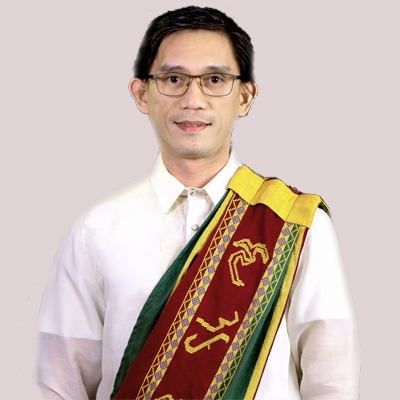 | Dr. Crisancti L. MacazoFaculty School of Education, Liberal Arts, Music, and Social Work CHRISANCTI L. MACAZO Ph.D Centro Escolar University, Manila Email: [email protected] Bionote: Chrisancti L. Macazo Ph.D | ||||||
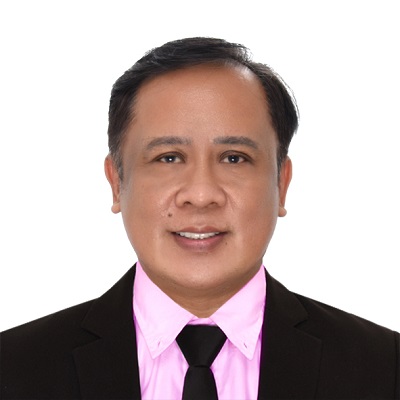 | Dr. Jonathan P. CatapangAcademic Department Head PE Department School of Education, Liberal Arts, Music, and Social Work JONATHAN P. CATAPANG Ph.D Centro Escolar University, Manila Email: [email protected] Google Scholar Account Bionote: Jonathan P. Catapang Ph.D | ||||||
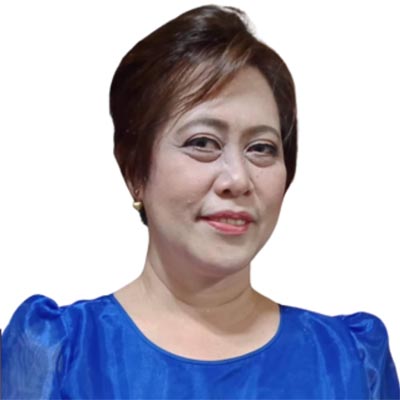 | Dr. Ruth R. SantosAcademic Department Head Social Science Department School of Education, Liberal Arts, Music, and Social Work RUTH R. SANTOS PhD Centro Escolar University, Manila Email: [email protected] Google Scholar Account Bionote: Ruth R. Santos PhD | ||||||
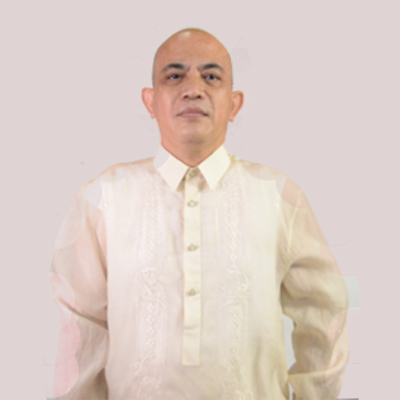 | Mr. D’Ariel JavellanaFaculty School of Education, Liberal Arts, Music, and Social Work D’ARIEL JAVELLANA Centro Escolar University, Manila Email: [email protected] Google Scholar Account Bionote: D;Ariel Javellana |
At Centro Escolar University, engaging in research is an endeavor that necessitates a deep understanding of the established framework that guides the behavior and practices of its researchers. This framework consists of thoughtfully crafted policies, guidelines, and a code of ethics, which together ensure that all research activities are conducted with the utmost integrity and respect, and in strict adherence to both academic and professional standards. These critical elements form the backbone of a culture that promotes accountability and excellence within the university.
Centro Escolar University has developed these policies and ethical codes not just to maintain legal and ethical standards but also to provide robust support to its researchers, enabling them to undertake work that is both impactful and conducted in an ethically sound manner. For anyone involved in research at CEU, it is imperative to be familiar with these guidelines. They clearly outline the expected conduct, and the core principles to be upheld and delineate the responsibilities shared by both the researchers and the institution.
CEU is committed to upholding the highest standards of research integrity and ethical conduct across all scientific endeavors. Our policies on Good Research Practice (GRP) serve as a comprehensive framework to ensure the well-being of human participants (CEU-IERB), the humane treatment of animals (CEU-IACUC), and the safe handling of biological agents ( CEU Biosafety Guidelines) in research settings. Faculty and staff conducting research at the university must ensure that their research aligns with the university's research agenda and adheres to approved clinical practice guidelines regarding human participants' laboratory animal use and the use of biological agents.
The University's research agenda serves as the direction for the research undertakings supported by the University. The Office of Research, Innovation, and Institutional Development (ORIID), headed by Dr. Erna Yabut - Vice President for Research, Innovation, and Institutional Development, led the crafting of the CEU Research Agenda. The event took place on June 27, 2023, at CEU Mendiola in Manila's ISC Mezzanine. Deans, Heads, Research Coordinators, and Faculty engaged in research all attended. An environmental scan was conducted to lay the framework for the creation of the CEU Research Agenda for 2018–2023.
S&T Fellow Dr. Karell Jo Angelique C. Calpito discussed the PCHRD-DOST Research Agenda (NHURA) and AmBisyon 2040. Pagtanaw 2050 was presented by Academician Rhodora Azanza, President of the National Academy of Science and Technology, Philippines (NAST PHL). The CHED Research Agenda was then delivered via recorded video by Ms. Mayumi G. Belandres, Officer-in-Charge, Chief Education Program Specialist, Office of Planning, Research, and Knowledge Management-CHED Central Office. After the Environmental Scanning, the Evaluation of the CEU's Research Agenda for 2018-2023 was presented by the Acting Head of the Research and Innovation Department, Dr. Josephine M. De Leon.
Participants in a workshop activity made up the afternoon session. Each discipline's priority research areas were chosen, presented, and aligned with the global and national research agendas. The activity created six (6) priority research agendas for the university and these include 1) Health and Wellness, 2) Intercultural Ethics, 3) Quality Teaching and Learning, 4) Corporate Social Responsibility and Entrepreneurship, 5) Environmental Research, and 6) Institutional Research.
FRAMEWORK USED IN THE CRAFTING OF THE RESEARCH AGENDA
The CEU Research Agenda was developed based on the Kingdon Multiple Streams Model. The model, which is used to describe policy change, is made up of policy streams. Problems, politics, and policies are the three streams that intersect to produce policy change. As a result, when creating the new agenda, policy changes are taken into account (Kingdon, 2010). To find out what policies had changed across the government, the environment was scanned. The Sustainable Development Goals of the United Nations, The National Economic and Development Authority (NEDA)-AmBisyon Natin 2040, the National Academy of Science and Technology, Philippines (NAST PHL)-Pagtanaw 2050, the PCHRD-DOST Research Agenda (NUHRA), and the CHED-National Higher Education Research Agenda (NHERA) were among them.
The agenda is created with the needs, strengths, specializations, and capacities of the University stakeholders in mind. The CEU research agenda reflects the demands and priority areas at the global, national, and local levels. The methodology used to develop the CEU research agenda is shown in Figure 1.
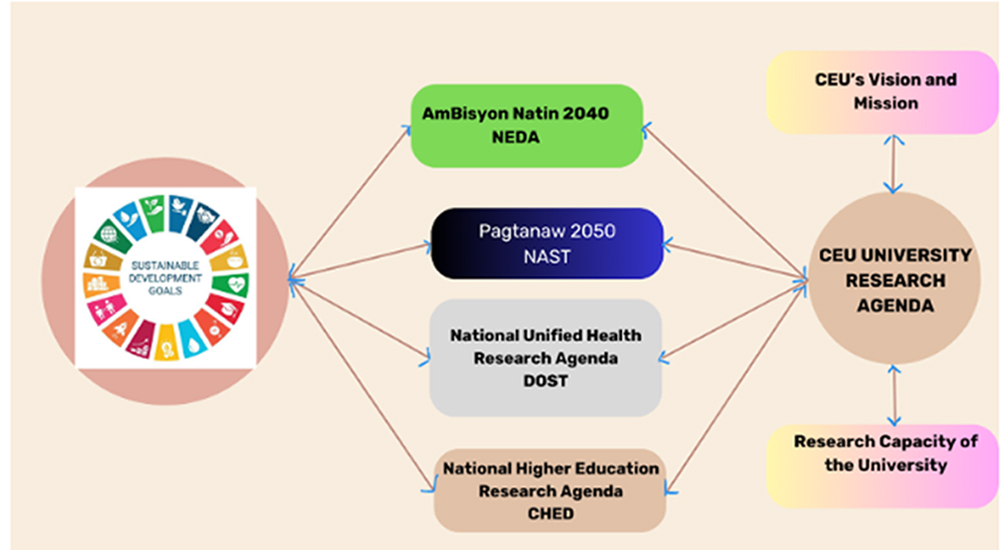
Figure 1: Basis of CEU Research Agenda
THE UNIVERSITY’S SIX RESEARCH AGENDA
Cluster 1: Health Science
(Health and Wellness)
- Research in the field of health and wellness is diverse and encompasses a wide range of topics aimed at understanding, promoting, and improving overall well-being.
- Research in health and wellness is essential for advancing our understanding of what contributes to a healthy life and for developing evidence-based strategies to improve the well-being of individuals and communities. It often involves interdisciplinary collaboration among scientists, healthcare professionals, policymakers, and other stakeholders to address complex health challenges.
RESEARCH PRIORITIES
- Drug Development (Pharmaceuticals and Nutraceuticals)- These areas of research play a vital role in improving human health by developing new drugs and providing food sources for individuals to enhance their well-being. Both fields involve a combination of scientific exploration, testing, and regulatory oversight to ensure safety and efficacy.
- Health Education and Awareness- In these areas, research plays a vital role in advancing our understanding of health, improving interventions and treatments, and ultimately enhancing the well-being of individuals and communities. Personalized approaches, evidence-based practices, effective educational materials, and the use of technology are critical components of these research efforts.
- Diagnostic Biomarkers -These areas of research hold promise for improving dental care, early detection and management of chronic kidney disease and associated conditions, and the development of personalized strategies to address metabolic syndrome. Advances in biomaterials, biomarkers, and genetics profiling contribute to more effective and tailored healthcare interventions.
- Patient-centered interventions -research areas contribute to improving interventions, enhancing patient-centered care for chronic diseases like TB and DM, and addressing vision issues in vulnerable populations. The findings from such research can inform policies and interventions to promote better health outcomes and well-being.
Cluster 2: Social Science and Humanities
(Intercultural Ethics )
- Research in the social sciences and the humanities is often interdisciplinary, bridging literature and history, philosophy and art, or music and religion.
- Each of these fields of study is rich and multidisciplinary, offering valuable insights into various aspects of human society, culture, ethics, and creativity. Research in these areas contributes to a deeper understanding of the world we live in and helps shape our perspectives on important social and intellectual issues.
RESEARCH PRIORITIES
- Cross-cultural Ethics area of research provides valuable insights into contemporary political and social phenomena, as well as the development of skills and knowledge needed for effective cross-cultural interactions in various domains. These studies contribute to a deeper understanding of complex issues and inform policies and practices for improved societal outcomes.
- Normative Ethics and Moral Philosophy- investigating the necessity of virtues in the exercise of duty, this research contributes to our understanding of moral and ethical behavior, offering guidance on how individuals and societies can promote virtuous conduct while fulfilling their moral obligations and responsibilities.
- Political Ethics and Social Justice-By examining social critique and critique discourses, researchers aim to gain insights into how societies grapple with issues of justice, equity, morality, and cultural change. This research contributes to our understanding of the dynamics of societal criticism and its role in shaping the world we live in.
Cluster 3: Education
(Quality Teaching and Learning)
- Research in quality teaching and learning is a vital field that aims to enhance educational practices and outcomes. It involves investigating various aspects of teaching and learning processes, strategies, and environments.
- Quality teaching and learning research are crucial for informing educational policies, improving teaching practices, and ensuring that students receive a high-quality education that equips them with the skills and knowledge they need for success in their academic and professional lives. This research ultimately contributes to the continuous improvement of educational systems worldwide
RESEARCH PRIORITIES
- Teaching Quality- This area of research contributes to our understanding of digital literacy, future thinking, and various aspects of teacher professionalism and well-being, ultimately informing educational policies and practices.
- Learner Attributes- These research areas contribute to our understanding of important aspects of education, mental health, and social dynamics, providing insights and evidence that can inform policies and practices to improve these areas in academic and broader contexts.
- Curriculum- Research in these areas informs educational practices and policies, helping to improve the quality of clinical training, curriculum development, mental health support, and music education for tertiary and gifted students. It contributes to evidence-based approaches that benefit both students and institutions.
- Teaching and Learning Tools and Processes- Research in these areas contributes to the ongoing transformation of education by providing evidence-based insights and innovative approaches that enhance teaching and learning across diverse fields and contexts. It also focuses on the use of technology and Artificial Intelligence (AI) in improving the teaching and learning process.
Cluster 4: Business and Hospitality Management
(Corporate Social Responsibility and Entrepreneurship)
- Research in the fields of Corporate Social Responsibility (CSR) and Entrepreneurship is essential for understanding how businesses can create positive social and environmental impacts while pursuing economic goals.
- Both CSR and Entrepreneurship research contribute to our understanding of how businesses can operate responsibly, create value for society, and drive economic growth. This knowledge informs business practices, policy development, and the pursuit of sustainable and ethical business models.
RESEARCH PRIORITIES
- Mobile Commerce (M-commerce)- This research focuses on investigating consumer behavior patterns in mobile commerce, including mobile shopping apps, mobile payment systems, and location-based services. It also examines the role of mobile devices in shaping the overall online shopping experience.
- Social Entrepreneurship- This research focuses on investigating how social enterprises balance social and financial goals and contribute to sustainable development.
- Cultural Heritage Tourism- Research in cultural heritage tourism contributes to the sustainable development and preservation of cultural treasures while fostering cross-cultural understanding and economic growth. It informs policies, management practices, and marketing strategies to maximize the benefits of tourism while minimizing potential negative impacts.
- Culinary Tourism- Culinary tourism research contributes to the development of sustainable and culturally enriching travel experiences. It provides valuable insights for destination management, culinary businesses, and tourism policymakers, fostering economic growth and cultural exchange through the appreciation of food and gastronomy.
Cluster 5: Environmental Research
(Climate Change Mitigation, Biodiversity, and Ecosystem Conservation)
- Environmental research priorities encompass a set of key areas and topics that scientists, policymakers, and stakeholders consider critically important for understanding, protecting, and sustaining the environment. These priorities guide research efforts aimed at addressing pressing environmental challenges and mitigating their impacts
- These research priorities are dynamic and can evolve as new challenges emerge and scientific knowledge advances. Addressing these priorities requires interdisciplinary collaboration, data-driven approaches, and engagement with policymakers and communities to develop effective solutions for a more sustainable and resilient future.
RESEARCH PRIORITIES
- Climate Change Mitigation-Research in these areas contributes to the sustainable management of natural resources, the protection of biodiversity, and the development of responsible and environmentally friendly tourism practices, while harnessing the potential of AI and data-driven approaches to address complex challenges.
- Ocean and Marine Research- Research in this area contributes to the development of sustainable, eco-friendly, and effective cosmetic products that harness the unique properties of seaweed-derived compounds for skincare and beauty applications.
- Nanotechnology in Cosmetics-Green nanotechnology and the use of antimicrobial and cosmetic raw materials align with the growing interest in sustainable and eco-friendly beauty products. Research in these areas aims to balance performance, safety, and environmental responsibility in cosmetic formulation.
- Biodiversity and Conservation Research on the development of tissue culture protocols for bamboo focuses on establishing techniques to propagate and cultivate bamboo plants using tissue culture methods. This area of research is essential for the conservation, mass production, and genetic improvement of bamboo species.
Cluster 6: Institutional Research
- Research in institutional research focuses on the collection, storage, analysis, and utilization of data within the institution.
RESEARCH PRIORITIES
- Employee Engagement and Motivation- This research focuses on examining strategies to enhance employee engagement and motivation among support staff. It will also focus on Investigating the impact of recognition programs and employee feedback mechanisms.
- Employee Job Satisfaction and Well-being- This research focuses on investigating the factors influencing job satisfaction and well-being among faculty and support staff in the institution. It also explores the impact of workplace conditions, recognition, and professional development opportunities on support staff morale.
- Diversity, Equity, and Inclusion of Students- This research investigates the experiences of underrepresented groups in higher education and explores strategies to enhance diversity, equity, and inclusion among student populations.
- Student Well-being - This research explores the mental health and well-being of students, considering stressors, coping mechanisms, and support systems. It also focuses on investigating the impact of well-being on academic performance and retention.
Institutional Ethics Review Board
The Centro Escolar University (CEU) Institutional Ethics Review Board (IERB) was created and convened in December 2020. Although there has been the Institutional Research Ethics Committee that has existed in the CEU before 2020, this initiative is intended to focus on creating and implementing standard operating procedures (SOPs) and forms that are detailed according to the Philippines Health Research Ethics Board (PHREB) as the University seeks accreditation. This is a single research ethics board with component review panels for both health science and non-health science research. With the purpose of accreditation as well, this Board is intended to provide a supportive and enabling environment for all researchers in the university and in doing so, ensure the health and safety of the research participants and uphold the ethical practice of doing research. For now, its oversight applies to the University Faculty and Personnel, and Undergraduate and Graduate Students doing research in the Centro Escolar University.
Accreditation Level:
The CEU Institutional Ethics Review Board (IERB) holds a PHREB Level 2 Accreditation. This certification, awarded by the Philippine Health Research Ethics Board, is given to ethics review committees (ERCs) that show proficiency and capability in ethical review processes. A Level 2 certification indicates that the ERC is capable of basic operations, including having standard operating procedures (SOPs) for reviewing research proposals, ensuring that members have undergone training and demonstrated competence in research ethics, maintaining thorough documentation and record-keeping, and conducting regular meetings.
INSTITUTIONAL REVIEW BOARD
Chair: Dr. Ronald D. Subida
Vice-Chair: Dr. Marivic A. Villamor
Secretary: Dr. Dorothea C. Dela Cruz
Members: Health Science Cluster 1 Panel
Health Science Cluster 2 Panel
Non-Health Science Panel
Graduate School/ Medicine/ Faculty Panel
Contact Information:
Mrs. Vivian V. Suto
IERB Secretariat
Centro Escolar University, Manila
Office of Research, Innovation, and Institutional Development (ORIID)
2nd floor CAH Building
Email: [email protected]
Telephone number: +63 02 735 6861 to 71 local 275
All research involving laboratory animals must be reviewed and approved by the Institutional Animal Care and Use Committee (IACUC). The CEU IACUC is responsible for evaluating and recommending approval of research protocols involving animals, offering technical recommendations and guidelines, overseeing compliance with regulations, and assessing proposals for the use of vertebrate animals.
Institutional Animal Care and Use Committee
Chair:
Dr. Imelda Romero
Members:
Dr. Josephine M. De Leon
Mr. Rogelio S. Cruz
Mrs. Mylene S. Andal
Dr. Geraldine M. Robles
Mr. Eugene Marc D. Cera III
Mr. Ronald V. Mendoza
Mr. Johnrex Lester T. Ramos
Mrs. Joan S. Adriano
Mr. Nelson T. Sison
Ms. Kimberly B. Sacdalan
Mr. Drandreb B. Bermudez
Dr. Flor M. Viloria
 | Dr. Josephine M. De LeonHead, Research and Innovation Department JOSEPHINE M. DE LEON PhD, RN Centro Escolar University, Manila Office of Research, Innovation, and Institutional Development 2nd floor CAH Building 9 Mendiola St. San Miguel Manila Email: [email protected] | ||||||
 | Joan S. AdrianoFaculty Biological Science Department School of Science and Technology JOAN S. ADRIANO Centro Escolar University Manila Biological Science Department School of Science and Technology Email: [email protected] | ||||||
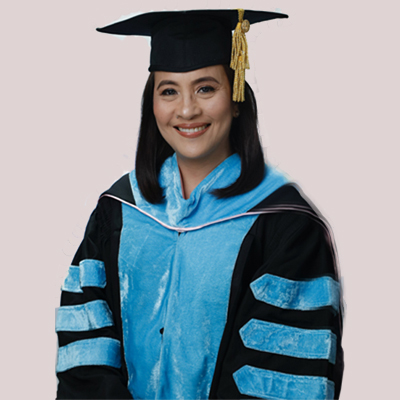 | Dr. Imelda R. RomeroEmail: [email protected] Bionote: Dr. Imelda R. Romero | ||||||
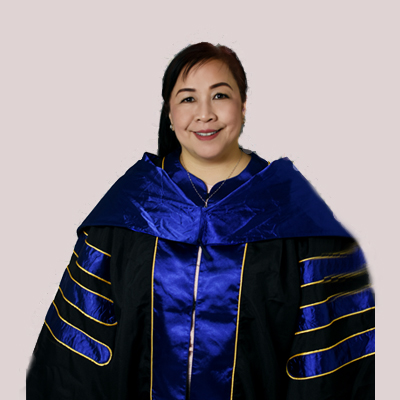 | Dr. Florisa M. ViloriaUniversity Veterinarian Bionote: Dr Florisa M. Viloria |
Application for IACU Clearance: ANIMAL PROTOCOL FORM
An online fillable Approval Sheet for the Conduct of Scientific Procedures Using Animals is available at qms.ceu.edu.ph. This form, along with the request form for laboratory animals, must be endorsed by the Adviser and Dean/Department Head for review. Research protocols should be submitted online to the office of the IACUC chairman via the IACUC secretariat.
Contact Information:
Dr. Imelda Romero
Biological Science Department
2nd floor CAH Building
Centro Escolar University
9 Mendiola Street San Miguel, Manila 1005
Telephone number: +63 02 735 6861 to 71 local 253
Email: [email protected]
Latest Updates: Faculty and Students Orientation to IERB and IACU
University Biosafety Committee
The CEU Biosafety guidelines mandate that all faculty, graduate, and undergraduate researchers requiring the use of biological agents—including bacteria, viruses, parasites, fungi, prions, and related microbiological products—adhere to strict protocols. These guidelines ensure the safe handling, containment, and disposal of biological materials to protect individuals, communities, and the environment from potential risks. They also aim to ensure that research involving biological agents is conducted safely and in compliance with applicable regulations. Additionally, a biosafety committee was established to provide oversight, guidance, and support for activities involving biological materials within the research setting.
Committee Members
Chair:
Dr. Josephine M. De Leon
Members:
Mr. Rogelio Cruz
Mrs. Ronald Mendoza
Dr. Ronald D. Subida
Engr. Ronnie U. Siniguian
Dr. Rosario Donalyn L. Manigbas
Contact Information
Dr. Josephine M. De Leon
Office of Research, Innovation, and Institutional Development (ORIID)
2nd floor CAH Building
Centro Escolar University
9 Mendiola Street San Miguel, Manila 1005
Telephone number:
Direct Line: +63 02 78356002
Trunk Line: +63 02 8756861 to 71 local 228
Email: [email protected]
To enhance research productivity and assist faculty members in their research endeavors, the university has formulated policies regarding several initiatives These include the allocation of research load, incentives for publications, subsidies for presenting papers and posters, workshops, and seminars aimed at enhancing research capabilities, recognition, and ranking points, and providing access to research facilities and equipment. These incentives are extended to both permanent and probationary faculty members who have secured research grants.
Granting University Research Funded Proposal
Before each semester, the RID solicits research proposals, with eligibility limited to full-time permanent or probationary faculty. Research credit loads are granted to qualified faculty members, with collaboration between faculty and non-teaching staff encouraged. Proposals must be endorsed by the Dean, Department Head, or Program Head, and consist of a lead researcher and co-researchers chosen from relevant personnel. The Technical Review Committee (TRC), chaired by the Head of the RID, evaluates proposals independently, considering various criteria such as alignment with university research goals, clarity of objectives, and ethical considerations. Proposals scoring below 80 are given the opportunity for funding upon addressing feedback, with ethical clearance required before funding approval and research commencement.
Publication Incentives
Publication incentives at CEU include several key requirements and benefits. Research papers must not appear in Beall's list of potentially predatory journals, and should be indexed in reputable databases like Scopus or ISI at the time of publication. For new journal inclusions, supporting documentation must be provided. Collaborative research must list CEU faculty as authors, and CEU should be indicated as the primary affiliated institution. The university offers financial support for submitting research to peer-reviewed journals, with publication fees based on the publisher's rates. Researchers publishing in local and international refereed journals will receive cash incentives according to specified types.
Subsidies for paper and poster presentations
CEU offers subsidies for paper and poster presentations to permanent and probationary faculty members. Fixed-term faculty can also qualify if they have been with CEU for at least four semesters, are the lead author of a paper completed within the previous year, and are not presenting a thesis or dissertation. The primary affiliation must be CEU. The incentives cover registration fees, fares, and accommodation for local presentations. The university grants official time for presentations, subsidizing one researcher per paper. To avail of the subsidy, researchers must submit the acceptance notice from the sponsoring organization and the completed Incentive Form to the Research and Innovation Department.
University Policies on Intellectual Property Rights (IPR)
The University's IP Policy covers various intellectual property rights recognized by Philippine laws, such as copyright, trademarks, patents, and more. Ownership of works by academic and research staff or students generally belongs to the University, except under specific circumstances outlined in agreements or if created with minimal University resources. For software, different IP rights apply, and the University can use these works for academic purposes with notification to the owner. IP created with substantial University resources or during research under agreements typically belongs to the University. The Intellectual Property Management Committee oversees the policy's implementation, evaluating works for commercial potential, managing the patent portfolio, negotiating agreements, and resolving disputes.
Technology Transfer Protocol
The IP Management Committee (IPMC) returns IP creations to inventors for commercial exploitation under specific conditions: if the university decides against patenting and commercializing, if the IPMC fails to inform within three months of receipt, or if commercialization doesn't occur within three years without ongoing discussions. The university can negotiate IP agreements with third parties and determine terms as the legal owner. Revenue from commercialization is shared, with 40% to the university and 60% to inventors, covering initial expenses. If the university receives company shares, proceeds follow the same sharing ratio. Joint inventors share equally unless specified otherwise, and funds receive 10% each from the university's portion. For inventors from different units, sharing is proportionate. If IP rights are returned, inventors pay the university 5% of net commercial revenue or shares received from commercialization.
Incubation and commercialization
Inventors must promptly disclose intellectual property (IP) details to the IP Management Committee (IPMC) using a Technology Disclosure Form, with an evaluation done within three months for registration or commercialization potential. The University typically seeks IP protection for commercial purposes, coordinating obligations to external parties if necessary. Inventors must maintain confidentiality to avoid patenting issues, and any interested parties in commercializing the IP must be disclosed. University staff must submit a Declaration of Mandatory Disclosure before pursuing registration or commercialization of owned IP.
The RID developed research training and workshops aimed at enhancing the research capabilities of faculty and staff. The Modular Research Training Program provides thorough education to bolster the research skills of faculty and staff, encompassing proposal writing, research design, and publication. Moreover, the Research Mentoring Program nurtures mentor-mentee connections to advance careers and research endeavors. Tailored seminars and workshops explore various topics including biomedical technology, grant writing, and patenting, providing participants with practical expertise and skills essential for achieving research excellence.
Modular Research Training Program
The University is deeply committed to its mission of fostering academic excellence and promoting research as a cornerstone of knowledge creation and dissemination. As part of this unwavering commitment, the university has embarked on an ambitious journey to enhance the research capacity of its faculty and staff through the implementation of the Modular Research Training Program.
At the core of our mission lies the recognition that the quality of research conducted by our faculty and staff directly impacts our ability to address complex challenges, contribute to intellectual discourse, and make a meaningful difference in society. We firmly believe that investing in the research capabilities of our academic community is not only an investment in the future of our institution but also a testament to our dedication to advancing scholarship and innovation.
The Modular Research Training Program is designed as a comprehensive and strategic initiative aimed at empowering our faculty and staff to excel in their research endeavors. Through this program, we are dedicated to providing the necessary resources, support, and opportunities that will enable our academic community to thrive as researchers, scholars, and thought leaders.
Modular Research Training Program on Writing Research Proposals
The Modular Research Training Program for Writing Research Proposals is a comprehensive and structured educational initiative designed to empower individuals with the knowledge, skills, and expertise required to excel in the art and science of crafting practical research proposals. This program is tailored to meet the needs of researchers, scholars, and professionals across various disciplines who seek to develop compelling research proposals for academic, scientific, or funding purposes.
The Modular Research Training Program for Writing Proposals is not only designed to enhance participants' ability to secure research funding but also to elevate the quality and impact of their research projects. By equipping individuals with the tools and knowledge needed to effectively communicate their research objectives and methodologies, this program plays a vital role in advancing research excellence and contributing to the growth of knowledge in diverse fields of study.
Dr. Josephine M. De Leon, currently serving as the Head of the Research and Innovation Department, leads the program. She is joined by a team of Research Scholars who play an integral role in contributing to the creation and enhancement of program modules, as well as actively participating as Research Mentors during program implementation. The team for this program is composed of Mr. Richard Rillo, Dr. Naressia S. Ballena, Dr. Hannah Monique R. F. Arceo, Dr. Ma. Mercedes G. Loo, and Mr. Benedicto B. Reyes.
Module 1: Research Agenda:
This module has been meticulously crafted to help participants navigate the intricate process of shaping and refining their research agenda. Whether the participants are graduate students embarking on their academic journey, seasoned scholars seeking to expand their research portfolio, or a professional in a research-intensive field, this module will provide them with the knowledge, tools, and strategies to develop and communicate a compelling research agenda.
Module 2: Research Funding Agencies
This module will explore the diverse landscape of research funding agencies, encompassing governmental bodies, private foundations, non-profit organizations, and international entities. It will delve into the intricacies of the funding application process, including identifying appropriate funding opportunities, crafting persuasive grant proposals, and navigating the review and selection procedures.
Moreover, It will discuss emerging trends in research funding, such as interdisciplinary research initiatives, open science, and collaborative partnerships, which are shaping the future of research funding. Whether the research interests span the sciences, humanities, social sciences, or other domains, this module will provide participants with valuable insights and practical guidance on accessing the financial resources necessary to advance their work.
Module 3: Contents of a Research Proposal
This module is designed to equip faculty and staff with the knowledge, tools, and strategies necessary to create a research proposal that not only meets the rigorous standards of academia but also effectively communicates the research objectives, methodology, and significance. Whether the participants are graduate students preparing for their thesis or dissertation, an academic seeking funding for a research project, or a professional in a research-intensive field, this module will guide participants through the key steps and best practices in writing a research proposal.
Module 4: Research Budget Proposal
Participants will delve into the intricacies of research budgeting, covering topics such as identifying budget categories, estimating expenses, justifying costs, and aligning the budget with their research plan. You will also learn how to create a budget narrative that effectively communicates the financial rationale behind your research proposal to funding agencies, sponsors, or stakeholders.
Module 5: Research Project Duration
Throughout this module, participants will explore the nuances of research project duration, covering critical topics such as setting realistic timelines, developing comprehensive project schedules, identifying potential roadblocks, and implementing effective time management strategies. Participants will also learn how to adapt and adjust project timelines when unforeseen challenges arise and how to align project durations with their research objectives.
Modular Research Training Program on Research Design
The Modular Research Training Program on Research Design is a comprehensive and structured educational initiative meticulously crafted to equip individuals with the essential knowledge and skills necessary for proficiently navigating the intricate research design process. This program caters to researchers, scholars, and professionals across diverse fields who aspire to enhance their expertise in formulating sound research designs that are methodologically robust, ethically sound, and conducive to generating valuable insights.
The Modular Research Training Program on Research Design is not only designed to empower participants to develop rigorous and effective research designs but also to elevate the quality and impact of their research endeavors. By imparting the expertise and tools needed to design research studies that yield meaningful and actionable results, this program contributes significantly to advancing research excellence across diverse academic and professional fields.
The program is spearheaded by Dr. Pearl Ed G. Cuevas, who presently holds the position of Coordinator for Research and the Graduate School in the School of Nursing. Assisting her in this capacity is a dedicated team of Research Scholars, who play a pivotal role in developing and enhancing program modules. Furthermore, they actively engage as Research Mentors during the program's implementation phase. The team for this initiative comprises Ms. Joan Adriano, Mrs. Mylene Andal, Dr. Maria Dinna P. Avinante, Dr. Dennis Caballes, Dr. Josephine M. Carnate, Mr. Roy John R. Del Rosario, Mr. Gerard Anthony M. Espiritu, Dr. Margarita Grey, Mr. James Philip Monserate, Mr. Ruel Nalam, Dr. Avelina Raqueno, Dr. Ana Marie Rubenicia, Mr. Adrian Segovia, Dr. Ronald D. Subida, Dr. Marivic A. Villamor and Dr. Erna V. Yabut.
Module 1: Research Instruments
The first module on research instruments gives an introduction to survey tools and instruments, an overview of the research development process, research instrument conceptualization, a description of the research tools and instruments, designing, pilot testing, and adapting the research instruments, and survey administration.
Module 2: Quantitative Research
The second module is on quantitative research which defines quantitative research methods and design including descriptive and historical research, teaches when to use quantitative research designs, the advantages and disadvantages of the technique, and its difference from qualitative research designs.
Module 3: Experimental Research
The third module on experimental research defines experiments, the components of an experimental study method plan, participants, variables, instrumentation and materials, and types of experimental research, and discusses the experimental procedures of how to conduct experimental research. The module also includes threats to validity, approaches for the procedure in the experiment, steps to describe a data analytic plan, interpreting results, and writing a discussion section.
Module 4: Qualitative Research
The fourth module on qualitative research provides an introduction to the design and a discussion of the different qualitative research methodologies in the social sciences.
Module 5: Mixed Methods Research
The fifth module on mixed methods research shares information on the different designs that can be embedded together. The module also teaches the participants how to design and conduct mixed-methods research.
Module 6: Clinical Research
The sixth module showcases an introduction to clinical research and the basics of conducting this type of research design.
Module 7: Public Health Research
The seventh module on public health research gives an introduction to this method and discusses research protocol writing.
Module 8: Action Research
The eighth module on action research is designed for the use of non-teaching staff in the university.
Module 9: Business and Market Research
The ninth module gives an introduction to business and market research. The module also discusses how to write a feasibility study and a business plan.
Module 10: Statistical Analysis
The last and final module is on using statistics to analyze the use of the methods and designs mentioned.
Modular Research Training Program on Publication
The Modular Research Training Program on Publication is a structured and comprehensive educational endeavor tailored to individuals seeking to enhance their proficiency in the field of academic and professional publishing. This program is meticulously designed to empower researchers, scholars, and professionals with the knowledge and skills required to navigate the intricacies of the publication process effectively, from conceptualizing research articles to achieving successful publication outcomes.
The Modular Research Training Program on Publication not only equips participants with the skills to publish their research effectively but also elevates the quality and impact of their scholarly contributions. By fostering expertise in the publication process, this program plays a vital role in advancing academic and professional careers, facilitating knowledge dissemination, and contributing to the broader scholarly community.
Leading the program is Dr. Julieta Z. Dungca, the Dean of the School of Science and Technology. She is supported in this role by a committed group of Research Scholars, who play a crucial part in both crafting and improving program modules. Additionally, they actively participate as Research Mentors during the implementation phase of the program. The team for this endeavor consists of Dr. Erwin M. Faller, Dr. Marc Garvida, Dr. Marcos Lopez, Dr. Joshua Macapagal, and Dr. Dennis Caballes.
Module 1: How to Write the Title, By LIne and Abstract
This module is designed to equip participants with the essential knowledge and skills needed to create compelling and informative titles, construct accurate and transparent bylines, and craft concise yet comprehensive abstracts. Whether the participants are seasoned researchers looking to refine their communication skills or novice researchers eager to make their mark, this module will provide valuable insights and practical guidance.
Module 2: How to Write an Introduction
Throughout this module, participants will explore the various components of a research introduction, unraveling the purpose and significance of each. Participants will delve into the art of framing research questions and hypotheses, articulating the gap in existing literature, and establishing the relevance and importance of their study. It will also discuss strategies for engaging the readers from the very beginning and maintaining their interest as they navigate through the research paper.
Module 3: How to Write a Methodology
This module will delve into the art of formulating research questions and hypotheses, selecting appropriate research methods, and justifying choices. It will discuss the importance of transparency, rigor, and ethical considerations in the research process, and how to articulate these in the methodology section. It will also examine techniques for effectively describing data collection procedures, data analysis methods, and the overall research design.
Module 4: How to Write Results and Discussion
This module is designed to guide participants through the process of writing results and discussion sections that not only report findings accurately but also engage readers and contribute to the broader body of knowledge in their field. Throughout this module, participants will explore the various facets of results and discussion sections, highlighting their distinct roles and purposes. It will delve into the art of presenting data effectively, using tables, figures, and narratives to communicate findings. It will also discuss strategies for interpreting results, drawing meaningful conclusions, and placing research in the context of existing literature.
Module 5: How to State the Acknowledgements and Citing the References
Throughout these modules, participants will explore the nuances of expressing gratitude, recognizing diverse forms of support, and crafting acknowledgments that are both gracious and professional. It will also delve into the intricacies of referencing, from choosing the right citation style to constructing bibliographic entries accurately.
The CEU Research Mentorship Program is designed to enhance the research capabilities of its faculty and staff. This program fosters a unique partnership between two individuals, founded on shared goals, expectations, and mutual trust and respect. Successful mentoring relies on the commitment of both mentors and mentees, serving as a vital mechanism for career advancement for both parties. Mentors provide significant intellectual stimulation to their mentees, and by collaborating on research projects or creative works of mutual interest, mentees evolve into colleagues with their mentors and other members of the research and creative works group.
CEU offers research capability writeshops to faculty and non-teaching staff. These innovative and intensive workshops are designed to enhance participants' research skills by providing focused, hands-on training in research writing and methodology. The program aims to equip researchers with the necessary skills to produce high-quality research outputs, from drafting proposals to publishing their findings. The write-shop fosters a collaborative environment where participants receive personalized guidance from experienced mentors and peers, engage in critical discussions, and refine their research ideas and manuscripts. By participating in this write shop, researchers gain valuable insights into the research process, improve their writing skills, and develop the confidence to pursue and complete their research projects successfully. Through this initiative, the university reaffirms its commitment to promoting research excellence and fostering a vibrant academic community.
CEU offers research capability training for the protection of intellectual property rights (IPR) to its community. This specialized program is designed to empower researchers with the knowledge and skills needed to navigate the complexities of intellectual property and realize their innovative ideas. The training covers the fundamentals of patenting, the process of securing intellectual property rights, and strategies for translating research into marketable innovations. By providing comprehensive guidance on patent application procedures, legal considerations, and commercialization pathways, the program aims to enhance the research community’s ability to protect and leverage their inventions. Through interactive workshops, expert-led sessions, and practical exercises, participants will gain a deep understanding of the patent landscape, improve their innovation management skills, and learn how to effectively protect and commercialize their research outputs. This initiative underscores the university’s commitment to fostering a culture of innovation, promoting research excellence, and contributing to economic and technological advancement.
All faculty and non-teaching staff must use the University Research Portal to submit their research productivity, updating ongoing and completed projects, publications, presentations, patents, and creative works regularly. Data from this portal is crucial for evaluating productivity, and innovation, and determining awards. The Research and Innovation Department summarizes this data per semester to assess the university's research agenda. Additionally, faculty, staff, and graduate students must maintain a Google Scholar Profile with the university as their primary affiliation, with other platforms like Academia, ResearchGate, and Scopus also monitored for research productivity.
Introduction
The Centro Escolar University Research Compendium is a biannual publication that highlights the research endeavors of our esteemed faculty and students. This compendium features a curated selection of studies and scholarly articles across various academic disciplines, demonstrating the depth and breadth of research conducted within our university.
Each edition of the compendium aims to provide a comprehensive overview of the innovative and impactful research carried out by our academic community. It serves as a platform for disseminating findings, fostering academic discourse, and showcasing the intellectual contributions of our researchers.
Through this publication, Centro Escolar University underscores its commitment to advancing knowledge and promoting academic excellence. The research compendium not only reflects the university’s dedication to high-quality research but also offers valuable insights and perspectives that contribute to the broader academic landscape.
PEER REVIEWERS
Dr. Julieta Z. Dungca
Dr. Pearl Ed. G. Cuevas
Dr. Eliza B. Ayo
Dr. Sonia Janice S. PIlao
Dr. Maria Dinna P. Avinante
Editorial Staff
Dr. Josephine M. De Leon
Dr. Rosana Lucero
Dr. Avelina Raqueno
Mr. Marlon Ryan Ricasata
Issue
CEU RESEARCH COMPENDIUM 2017-2019
CEU RESEARCH COMPENDIUM 2019-2021
Contact Information
Dr. Josephine M. De Leon
Office of Research, Innovation, and Institutional Development (ORIID)
2nd floor CAH Building
Centro Escolar University
9 Mendiola Street San Miguel, Manila 1005
Telephone number:
Direct Line: +63 02 78356002
Trunk Line: +63 02 8756861 to 71 local 228
Email: [email protected]